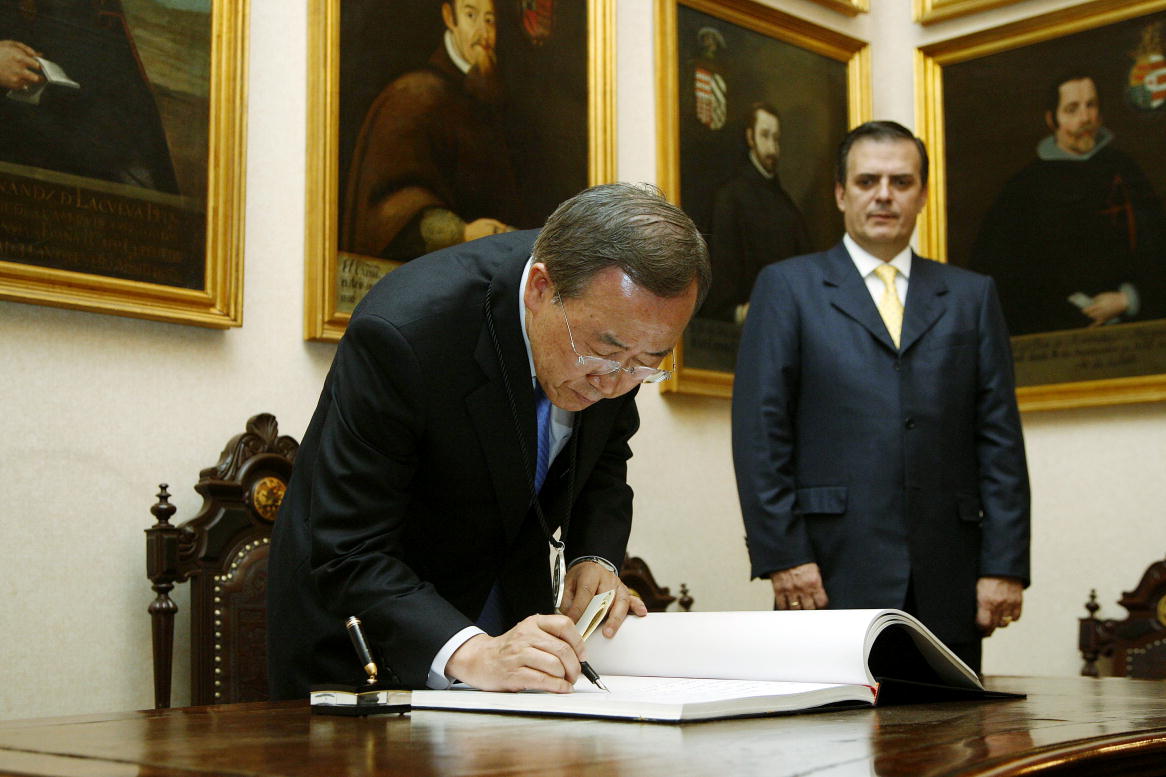By Andrew Kydd.
President Trump will today welcome Chinese President Xi Jinping to Mar-a-Lago, his Florida getaway. Among the many topics of conversation, one of the most important will be North Korea. Recent missile tests have brought the country ever closer to their goal of fielding an ICBM capable of hitting the mainland United States. North Korea’s leader, Kim Jong-un, had his half-brother assassinated in Malaysia using the nerve agent VX, apparently out of fear that China might view him as a more reasonable candidate for the throne. In retaliation, China stopped importing North Korean coal, drying up one of their few export markets. In response to the missile threat, the US and South Korea recently began deploying the Terminal High Altitude Area Defense (THAAD) missile defense system, which drew strenuous protests and some commercial retaliation from China directed at South Korea. In short, both the US and China have serious problems with North Korea, and yet Kim Jong-un is playing us off against each other just like his father did.
In response to this crisis, many analysts have urged a return to negotiations with North Korea over its nuclear programs, while others have urged a get-tough policy with China – an effort intended to encourage the Chinese to coerce the North Koreans into disarming. Both policies are doomed to failure as currently conceived.
Negotiations were tried by both the Clinton and Bush administrations and failed. President Clinton attempted to get the North Koreans to trade away their plutonium bomb program in exchange for energy aid. They agreed and then covertly developed a uranium enrichment capability. President Bush, despite inducting North Korea into the axis of evil, ultimately followed the same bargaining strategy and was rewarded with a series of nuclear tests. Bargaining failed because North Korea desperately wants nuclear weapons, both to defend itself against the US (think Saddam Hussein) and to bolster their domestic legitimacy. They will never trade them away. President Obama recognized this fact and decided to kick the can down the road in hopes that North Korea would collapse.
Getting tough with China to pressure the North Koreans will also fail. Over the years, China has occasionally applied limited pressure to influence North Korean behavior. Getting North Korea to give up its nuclear weapons is a much more ambitious goal, requiring more pressure than ever before. In fact, since the North Korean regime views nuclear weapons as essential to their survival, China would have to apply enough pressure to put that survival in question in order to get them to disarm. But China has no incentive to push the North Koreans hard enough to risk collapse of the regime. North Korea is China’s buffer against the US-led alliance in the region. Without North Korea, US troops would be on the Chinese border – with their technology, missile defense, and offensive capabilities in tow. China fought the Korean War in 1950 to prevent such a scenario, and they aren’t about to allow it now. Tough talk from the US only highlights this incentive, reinforcing the value of North Korea to China.
This raises the big question: could China be enticed, rather than bullied, into putting pressure on North Korea? Most ambitiously, could there be a deal in which China pulls the plug on North Korea in exchange for some significant concession from the US, such as withdrawing US troops (and THAAD) from South Korea? It would certainly be a deal for the record books, bringing freedom to millions of North Koreans who currently suffer under one of the most tyrannical regimes in the world. It would solve a security problem for the US that has defeated the past three presidents. It would benefit China in both security and economic terms, as well as end the threat of incoming refugees from a starving North Korea. It would arguably be good for all parties concerned – with the exception of the North Korean leadership – and even they might be bought out with an offer of asylum in China. What stands in the way of achieving such a deal?
On the US side, the main obstacle is a conventional wisdom which holds that the US needs to maintain troops in South Korea as part of its alliance network and engagement strategy around the world. This mindset is pervasive in Washington and will be difficult to overrule. The fact that the US is so intent on maintaining a presence in South Korea would also make the Chinese distrust any effort by the US to interest them in such a bargain. After all, if the Chinese fulfill their side of the bargain and let North Korea fall, what if the US does a double cross and keeps its forces in Korea afterwards? Once North Korea is gone, there will be no bringing it back, so the Chinese will be stuck.
President Trump could actually be the man to overcome this problem. No president in living memory has been less committed to maintaining US troops abroad. He has often entertained the possibility that the US might downsize its forces both in Asia and in Europe if American allies do not assume more of the defense burden. It is easy to imagine Trump evaluating such a deal positively, where previous presidents would have balked. This in turn could break the trust barrier with the Chinese. Given Trump’s open willingness to question traditional US commitments, the Chinese might be persuaded that when Trump says he will withdraw troops in exchange for Korean unification, he means it.
They used to say it takes a Nixon to go to China – it may take a Trump to cut a deal with China that unifies Korea. That would certainly be something to talk about at Mar-a-Lago.







